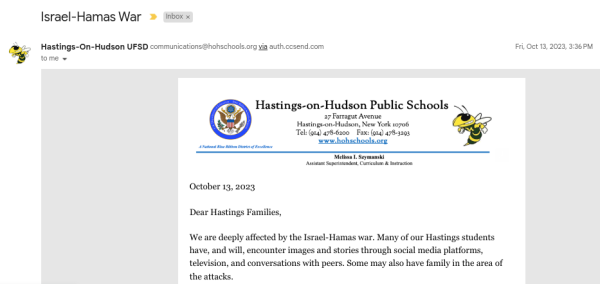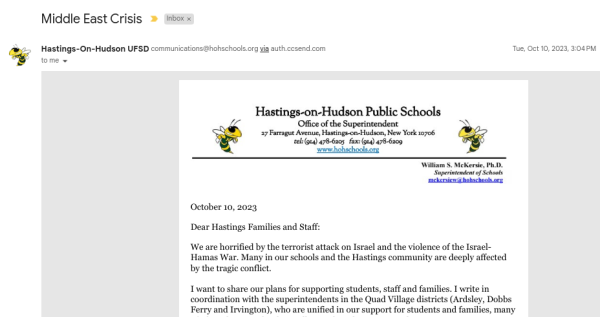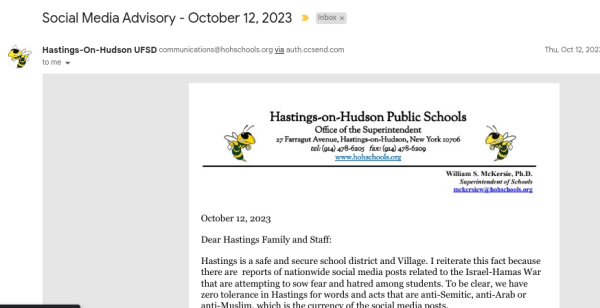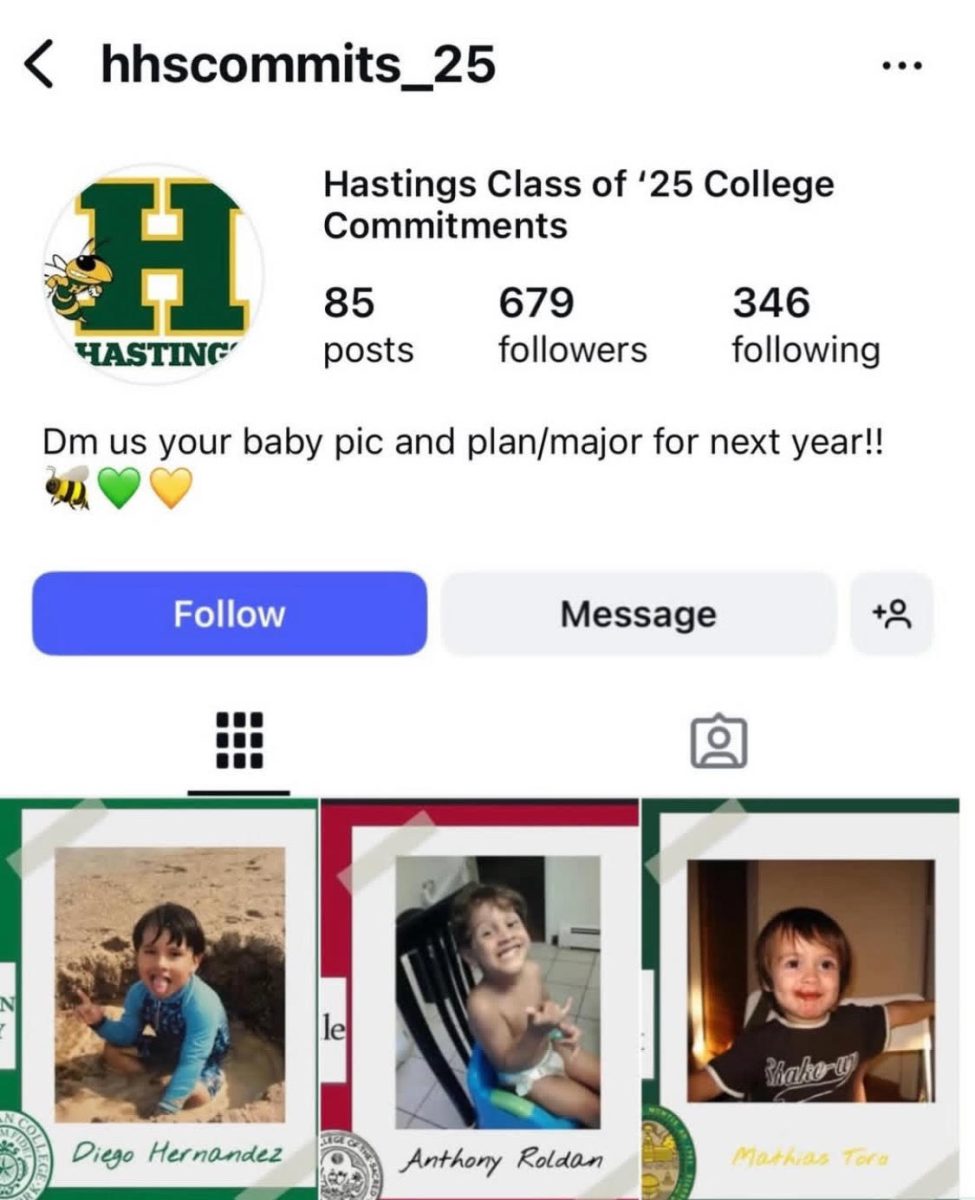Every so often, the Hastings community—students, parents, and teachers included—receives a letter from superintendent Dr. William McKersie or assistant superintendent Dr. Melissa Szymanski regarding a major world event or local incident.
In October, Dr. McKersie and Dr. Szymanski collectively sent out four statements regarding the Israel-Hamas War. The emails also included resources for students and families to better understand the issue. However, not every global or national conflict is communicated, so how does the administration determine which issues they inform us about?
Dr. McKersie explained how the Hastings schools “do not have any specific policy,” on communicating global issues in particular, although they “definitely have procedures that [th]ey as administrators follow as it relates to any item issue that has to be communicated.”
“We tend to keep our focus on what’s most directly affecting, first and foremost, the students, then the staff, and then from there, families,” said Dr. McKersie. He also explained how most of the communications that come out, through his Friday letters every other week, substantially consist of “what’s going on here.”
In regards to global affairs, Dr. McKersie emphasized that “when there is a world crisis that affects us directly in Hastings, then we will address it.” With the case of the Israel-Hamas War, Dr. McKersie recognized that it is an “incredibly serious and horrific situation” that is directly “affecting residents and students in Hastings…which is why [they] wrote about it.”
Although he felt that the letter itself was clear in stating that the attacks by Hamas were “horrific” and are “affecting us in Hastings,” Dr. McKersie mentioned that, if he could have written the letter again, he would have named it the “Israel-Hamas Crisis,” not the “Middle East Crisis.” 
“We have not sent anything out since, and we don’t intend to, unless something very specific comes up for us here in Hastings that relates to the community,” said Dr. McKersie in reference to the war.
In general, Dr. McKersie regularly touches base with the “Quad Superintendents,” which includes himself, and the superintendents of Dobbs Ferry, Irvington, and Ardsley, regarding “any number of issues.” On a larger level, there are also two superintendent groups (one for Southern Westchester County, the other for Hudson, Putnam and Westchester counties), which meet about twice a month. Dr. McKersie also mentioned that he consults the Tri-State Consortium, an “alliance of public schools” from the Tri-State area, and, within that “larger organization, they have a superintendents network.” These superintendent networks are an invaluable resource for considering and guiding communications on regional, state, national and, as necessary, international developments.
Dr. McKersie explained how communication between superintendents has had “a big uptick” since Covid, since “it was a totally brand new situation,” allowing administrations to compare their policies to each other and understand how to handle it. So, for addressing crises like the Israel-Hamas War, Dr. McKersie said he has been “in touch with the most immediate super[intendents] in the area” to get a sense of what needs to be shared with the community.
A letter was also shared with the community about social media advisory in relation to the war.
“Fortunately we have not had any [issues] with social media in Hastings directly affecting the schools, but a lot of superintendents were concerned about warning students early in the war about social media posts that could scare, frighten, or threaten [families and students],” Dr. McKersie expressed.
In fact, much of that letter was modified from a “set statement that was given to us by Altaris, which is a regional security consulting firm we use.”
In the past, Dr. McKersie has had to make statements about racist, antisemitic, and other incidents within the Hastings schools. He explained how, if there is an issue that did not impact a large group of students, then communication will only be sent out to the staff. Additionally, “if it’s something where several students were involved and students will be talking about it, but it’s building specific, we’ll then have a communication out to the building.” However, for an issue like the “horrific incident in the FMS bathroom” last year, which had a strong social media presence, Dr. McKersie will send out a “district-wide [message] with a zero tolerance statement.” For incidents like hate crimes, the Hastings Police Department is also contacted to address the responsible student(s), and the district is careful to send advance notice to the specific school community affected or the entire school district. .
Dr. McKersie believes, simply, in transparency: “my view is to disclose and help people understand, and, at the same time, it’s balancing that with the people need to know, or should know. I believe we do not grow if we are not open with each other about our struggles and pain points, as well as our successes and points of joy.”


















